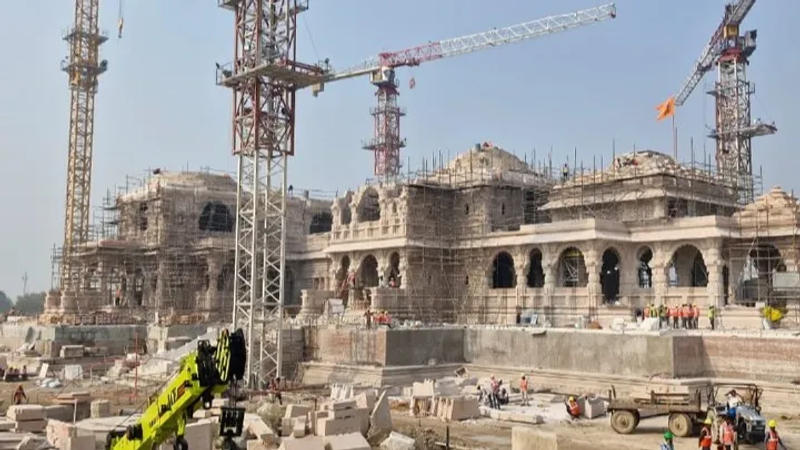Published 11:51 IST, December 17th 2023
Ram Mandir Timeline: Tracking the Progress from Construction to Completion
Explore the timeline of the Ram Mandir, from the construction's origins in 1528 to the upcoming grand inauguration on January 24, 2024.

Ram Mandir, the epitome of faith and patience is all set to inaugurated in January next year. The inauguration date of Ram Mandir is 22 January, 2024, but before that let's take a look back at all the important timelines which have played an important role in it.
IN 1528-1859:
In 1528, the Babri Masjid was built by Mir Baqi, commander of the Mughal emperor, Babur. Some people say that the Mughals demolished a Hindu shrine and constructed a Mosque in its place. This led to a political, historical, and socio-religious debate in India. After that, in 1853, there was the first case of religious fighting near the area. In 1859, British officials stepped in and put up a fence to separate the places where people worship. The inner court was for Muslims, and the outer court was for Hindus.
IN 1949-1999:
In 1949, statues of Ram and Sita were put inside the location, causing the government to label it a 'disputed site.' In 1984, a committee was established to construct a temple, and the Vishva Hindu Parishad (VHP) initiated the foundation for the Ram temple in 1989. Numerous political gatherings and processions were organized as part of this initiative, including the Ram Rath Yatra led by BJP leader LK Advani.
Demolition of Babri Masjid:
In 1992, a significant number of Hindu organizations demolished the Babri Masjid, triggering widespread riots across the country. Subsequently, the Liberhan Commission was established to investigate the destruction of the Babri Masjid. However, the final report wasn't submitted until June 30, 2009, after 17 years, to Prime Minister Manmohan Singh.
During 2010 to 2019:
In 2010, a judgment was delivered on the Ram Janmabhoomi-Babri Masjid land title case by a three-judge bench comprising Justice Sibhghat Ullah Khan, Justice Sudhir Agarwal, and Justice Dharam Veer Sharma. The bench stated that the land would be divided into three parts, one-third for the Sunni Waqf Board, one-third for the Nirmohi Akheda, and one-third for the party for 'Ram Lalla' or infant Ram represented by the VHP.
The SC delivered a landmark judgment in 2019. It stated that there would be Ram Mandir at the disputed site and the Muslim party would be given an alternate 5-acre plot to build a mosque. The bench headed by erstwhile Chief Justice of India Ranjan Gogoi read out a unanimous judgment and granted the entire 2.77-acre disputed land in Ayodhya to the ‘Ram Lalla’.
Bhoomi Pujan In 2020:
In August 2020, Prime Minister Narendra Modi laid the foundation stone for the construction of the Ram temple and since then the work to build the temple has been going on in full swing. The Uttar Pradesh Sunni Central Waqf Board formed a 15-member trust to look after the construction of the mosque. A trust, named ‘Shri Ram Janmabhoomi Teerth Kshetra’, is looking after the construction of Ram Mandir in Ayodhya, which will cost around Rs 1,800 crore
2021 - Foundation Stone Laying Ceremony:
On August 5, 2020, Prime Minister Narendra Modi lays the foundation stone for the Ram Mandir, marking the formal commencement of construction. The event witnesses the participation of various dignitaries and marks a pivotal moment in the temple's journey.
From 2021 till now:
On the 24th of January 2024, the grand inauguration of this state-of-the-art temple is scheduled for the 24th of January 2024. This historic event will witness the honorable Prime Minister Narendra Modi, presiding over the proceedings alongside another distinguished delegate
Updated 23:09 IST, December 18th 2023




